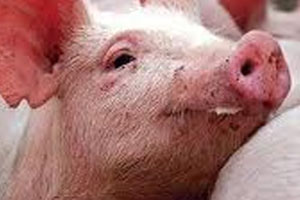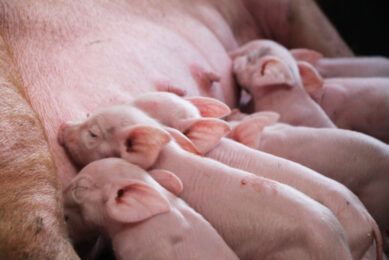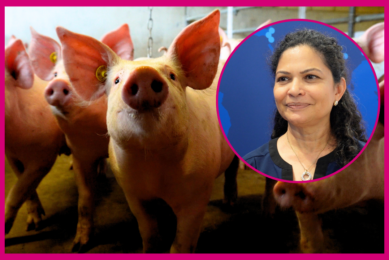Gut health in pigs: Bacteria not always a bad thing

Research has shown that the presence of bacteria in the intestines of pigs is not necessarily a bad thing. The challenge is to help the good bacteria and prevent the bad bacteria.
Most species of bacteria do no harm and many of them are not only beneficial but in fact essential for intestinal health. The challenge is to find the substances that boost the good bacteria and inhibit the bad bacteria. The use of such agents in pig production could lead to less use of antibiotics.
“The diversity of bacteria in the pig’s intestinal tract plays an important role not only for the animal’s welfare, but also for its nutrition, growth and meat quality,” says senior researcher Bent Borg Jensen from the Department of Animal Science at Aarhus University.
“For decades, antibiotics have been used to promote the health and growth of farm animals. This practice has, however, contributed to the development of bacteria that are resistant to antibiotics, which can be a serious problem when needing to treat diseases in animals and humans. An alternative approach to promoting health and growth in pigs is to supplement the diet with extra zinc or copper. The problem with this solution is that the surplus heavy metals end up in the manure with the risk of polluting the environment. We therefore need to find other solutions.”
“We need to develop feeding and caring strategies to manage the problems associated with modern pig production such as diarrhoea and ulcers. One possibility is to use probiotics,” says Bent Borg Jensen.
Probiotics and prebiotics
Probiotics are bacteria that are added to food and have a beneficial effect on the intestinal flora. The challenge of using probiotics is to keep them alive during feed production and feeding, so they can survive until they end up in the gut. Research has shown that this is possible when using wet fermented feed. Here probiotic lactic acid bacteria may be used for the fermentation.
Prebiotics are non-digestible fibrous substances added to the feed that are beneficial for the intestinal flora. Yet another possible solution could be the addition of organic acids or the use of low-protein diets with added essential amino acids. The challenge to the researchers with these solutions is to understand the physiological mechanisms and effects on gut health.
“It is my belief that the knowledge on the impact of gut bacteria on pig health and productivity that we have gained in recent years and will be gaining in the next few years will lead to the development of new types of feed, which combined with feed additives and feed processing will change the composition of gut bacteria so that the immune system will be strengthened and health and productivity boosted. The main challenge will probably be to find solutions that can compete financially with the use of antibiotics,” says Bent Borg Jensen.
[Note: Bent Borg Jensen talked about these points at the recent 65th Annual Meeting on livestock research, EAAP 2014, Copenhagen, Denmark – from the 25-29 August]
[Source: Aarhus University]











